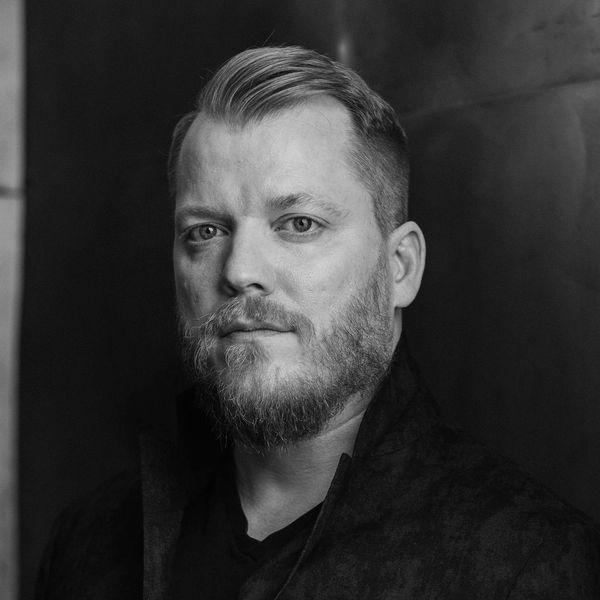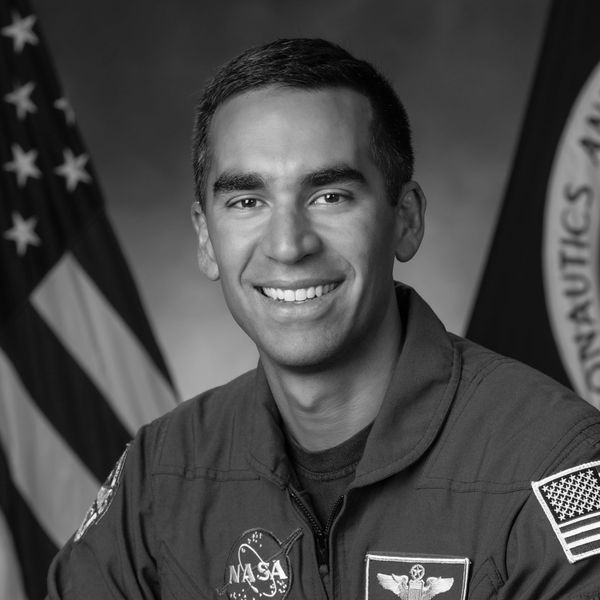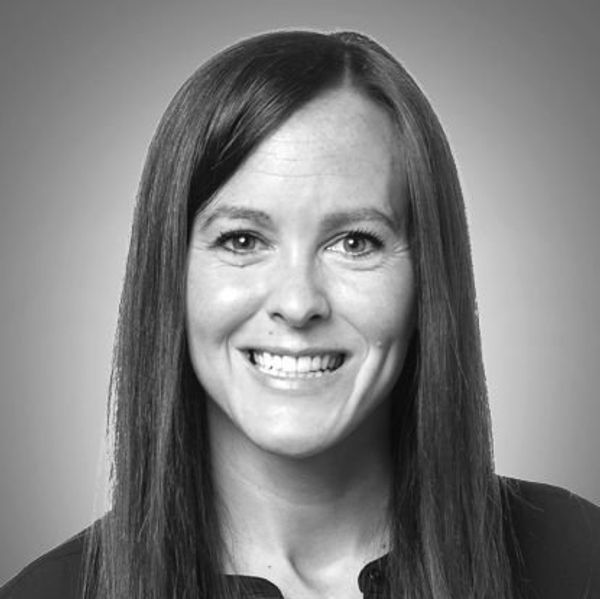Listen: There is a big difference between NASA’s current Artemis program and its Apollo program of five decades ago. This time, there is a long-term plan for humans on the moon. “We don't want to just touch it and come back and say we're done. We want to go there and stay there,” says NASA astronaut Raja Chari. He adds, “To do that, we need to go where there's resources.”
In the latest episode of Next Giant Leap, a podcast produced in partnership between GZERO and Canadian space company MDA Space, Raja Chari tells host Kevin Fong that the most valuable known resource on the moon is water ice, which could be used to sustain life in lunar bases. Water ice is most abundant in craters around the moon’s south pole. NASA is enlisting commercial companies such as SpaceX, Astrobotic Technology, and MDA to help get its astronauts to the polar region and in a position to ‘live off the land’ there.
One of MDA’s chief contributions to the Artemis program will be the robotic arm on a space station called the Gateway, which will orbit around the moon. The Gateway will be a transfer point for crew and cargo traveling to and from the lunar surface. MDA’s Holly Johnson is confident that the commercial space sector will be an essential enabler of the vision of a sustained human presence on the moon.
For a deeper dive into the private space industry’s part in the return to the moon, Kevin talks to Chad Anderson of venture capital firm SpaceCapital. Anderson explains why people are now talking about the rise of a ‘lunar economy’. He says, “Who controls the early infrastructure is set to control things and make a lot of money.”

Chad Anderson. Credit: David Noles
Chad Anderson
Founder and managing partner of SpaceCapital
Chad Anderson is the founder and managing partner of Space Capital. Space Capital is a seed-stage venture capital firm which invests in companies developing new space technologies. He is author of The Space Economy: Capitalize on the Greatest Business Opportunity of our Lifetime. Prior to founding Space Capital, Anderson led a successful career at JP Morgan Chase, where he managed a $50-billion real estate portfolio through the Great Recession. He has an MBA with a focus on entrepreneurship and innovation from the University of Oxford.

Raja Chari. Credit: NASA
Raja Chari
NASA Astronaut
Raja Chari was selected as a NASA astronaut in 2017. Prior to joining the space agency, he was a colonel and a fighter pilot in the United States Air Force. In 2021, Raja Chari made his first flight into space. He commanded the mission of a SpaceX Dragon capsule to the International Space Station. Raja Chari then spent almost six months aboard the space station as a mission specialist, which included two space walks. His next mission could well be an Artemis moon landing.

Holly Johnson. Credit: MDA Space
Holly Johnson
Vice President of Robotics and Space Operations, MDA Space
Holly Johnson was appointed vice president for robotics and space operations at the Canadian space company MDA Space in 2022. She is a trained mechanical engineer who has occupied engineering, business development, and corporate operations roles in her 15-year career at the Canadian company.

Kevin Fong. Credit: Anthony Cullen
Dr. Kevin Fong (host)
Professor, Department of Science, Technology, Education and Public Policy (STEaPP) at University College London
Kevin Fong is a senior emergency care physician and anesthesiologist in the UK’s National Health Service. He is also an expert in space medicine and has worked as a researcher in NASA’s human spaceflight program in Houston. He is also a broadcaster who has hosted many radio and television shows, and podcasts on space flight and exploration. They include the BBC hit podcast ‘13 Minutes to the Moon’.
- Next Giant Leap: New frontiers and the business of ... - GZERO Media ›
- Mission to the Moon, with Artemis II astronaut Jeremy Hansen ›
- The Politics of the Moon Mission ›
- Chinese space probe begins drilling on Moon ›
- Amazon satellites and Project Kuiper: next steps in Big Tech space race ›
- Welcome to Antarctica: A conflict-free zone - GZERO Media ›

